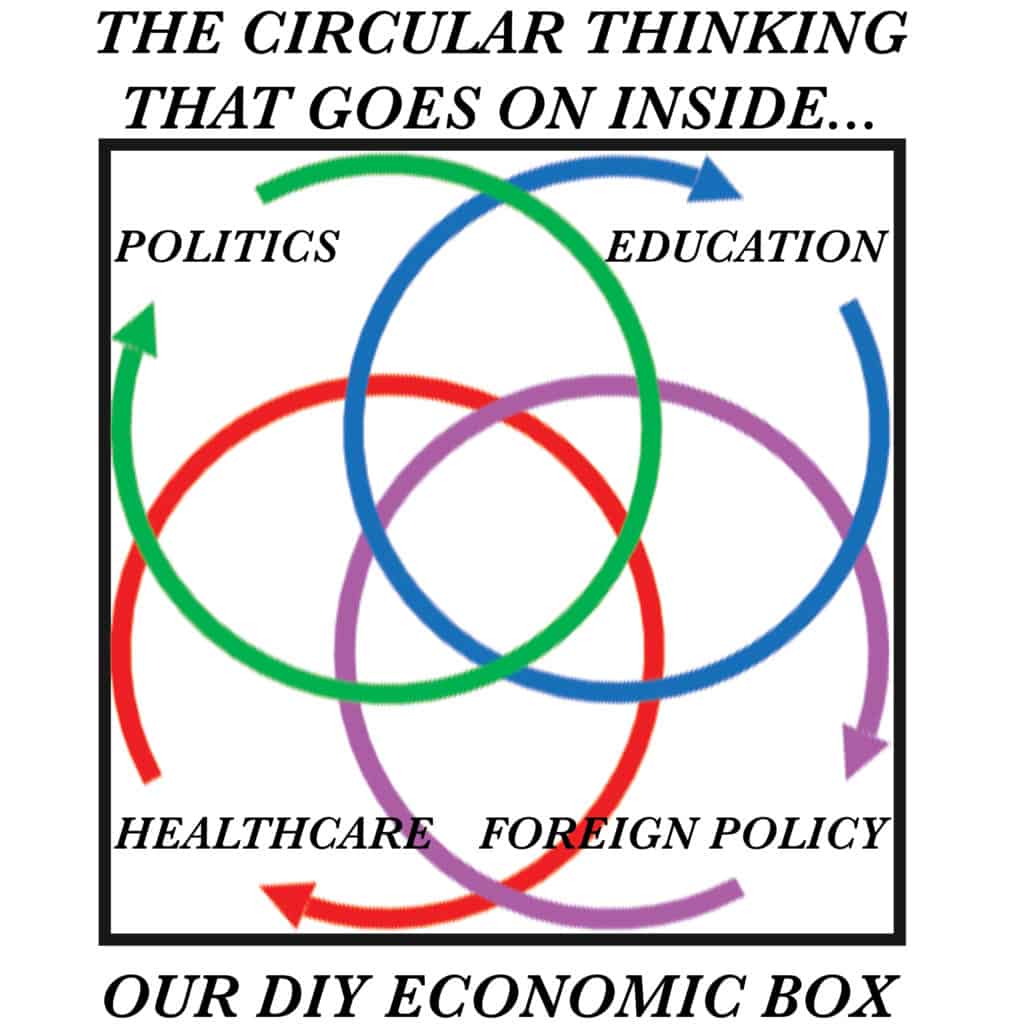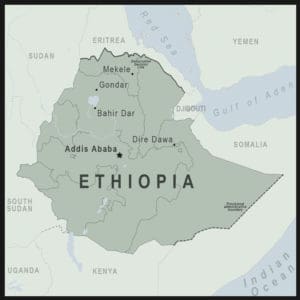OUR NEW AMERICAN FOREIGN POLICY
- Countries are People (195 of them)
- If possible, we will always try to help People. When we do, they will either
- Be grateful
- Want more
- All of the Above
- Thus, the best kind of help we can offer is to give People the means to help themselves
Better to reign in Hell than serve in Heaven.
– Satan, Paradise Lost
Ethiopia is not much different than America: it is made up of people, who are divided into tribes. People, when they stand alone as individuals, generally prefer peace, which simply means they would prefer to avoid conflict. It is the same with the Ethiopian people. Individually, they want peace. But power is not borne out of peace.
The Tigray People’s Liberation Front (TPLF), initially a dozen strongmen, slowly gained power during years of war that followed years of famine that followed years of war that followed years of colonial rule. Together, with the Eritrean People’s Liberation Front (EPLF), the TPLF eventually helped win independence for Eritrea while gaining control of Ethiopia for themselves. That was in 1991.
By 1995, Ethiopia was reorganized into nine ethnically-based regional states, and although the Tigrayan people only accounted for 6% of the population, the TPLF, by sowing conflict and division among the other tribes, managed to retain power another 23 years. The people finally grew weary of it, however, and decided to embrace the idea of one people versus 80 tribes, and in 2018, elected Abiy Ahmed as the new prime minister of Ethiopia.
Ahmed was awarded the Nobel Prize for his efforts to unite Ethiopia, but The TPLF was not ready to relinquish power so easily, and did not join with the other tribes. Instead, they had their own elections, attacked federal troops stationed within their region, and attempted to spark tribal war, all in the hope of maintaining power. Again, not much different than America, or more precisely, not much different than anyone who seeks power for its own sake.
Ahmed would, of course, prefer the ballot over the bullet, but the TPLF, knowing it cannot win with the ballot, is trying to force Ahmed to use the bullet. Ahmed is in a difficult position. He has federal troops surrounding the Tigrayan city of Mek’ele, where these TPLF strongmen have blended in with the Tigrayan citizens, in order to avoid any satellite surveillance. The Nobel Committee, founded by the man who invented dynamite, ironically expects Ahmed to sit on this powder keg and rule by some (as yet to be invented) passive means of control.
Such is the dilemma facing our species: one of us attempts to rise above their baser instincts, and two more are there to drag him back down into the mud (with the rest of us). Will Ahmed be forced to get his hands dirty, and somehow eliminate these strongmen, in order to bring peace to Ethiopia? Must all men of peace wind up becoming the tyrants they despise, or should they turn the other cheek, and risk getting nailed to the cross?
Power maintains a foothold because of our inherent Need to Belong. We are naturally born into groups, and must rely on them initially for survival. We often continue to find comfort in groups, where we derive much of our identity. Add poverty or oppression (or any form of abuse) to the equation, and this need will intensify. The sense of empowerment we derive from groups, if given just a little nudge in the wrong direction, can quickly turn them into vehicles for asserting power over others. The Need to Belong makes people sticky; once people form a bond, it becomes difficult to pull them apart. We are, after all, made of atoms, and atoms are always attempting to join, in order to form something stronger. It takes significant energy to break these molecular bonds, so our eventual goal must be to eliminate the oppressive factors that force people to adopt any agenda that does not fit their personally chosen belief system.
It is not the purpose of this website to utilize information for entertainment purposes, which it most assuredly becomes if we do not reflect on the information, extract some measure of truth from it, form a working hypothesis based on it, then test that hypothesis, prove (or disprove) it, and finally apply it toward solutions that improve our human condition.

Tribal thinking is archetypal hindbrain-rooted impulse honed over more years than we can fathom, and is reinforced every day through unconscious actions by every person. The only way to break this habit is to start forming a new one.
No one learns from being told what NOT to do. Improvement comes from setting the desired goal, breaking down the steps necessary to move toward that goal, and every day POSITIVELY reinforcing any step we take in this new direction. Learning is a difficult journey, because every step we take backwards means we now must take TWO steps to actually get anywhere – the first to simply get back to where we were. This is why we must remain “present” in our purposeful intent, as wrong-thinking is, unfortunately, our NORMAL pattern of thinking at this time.
When we regress to a high school level of pettiness, with our information-less twitter rants, write op-eds that dismantle someone else’s idea, in some political attempt to dismiss every part of it as unusable, or unconsciously peddle economic, political or religious ideas as set-in-stone fact, then basing decisions off of them, we are all heading, at best, in a circle.
The United States can choose to punt (or fumble this away) to someone else, but while we are still voted “most likely to boss people around and get away with it”, we need to take the reigns of foreign policy, and start practicing the kind of language that will eventually lead to world change.
Ethiopia is a perfect starting place because:
- They are actually doing something right. They are taking a positive step toward putting the individual above the tribe. This is the essence of true Democracy, the kind we all need to practice, as it forces leaders to come up with good ideas to stimulate the minds of the majority, rather than hawk divisive tribal rhetoric that continues to stall us from any meaningful progress. We need to give positive reinforcement to this kind of thinking, and use it as a teaching moment for the entire world, by clarifying every part of why this is a step forward, and one we all need to take.
- Ethiopia is not in the Forbes Top 100 economically, so us stepping in to positively reinforce their good example bolsters their self esteem in the world, and bolsters our position as well, because it informs every country that from now on, We will support any country that takes a step toward the direction we all must go. We are only as advanced as our least advanced. Leaving any people behind is seriously short-sighted (and ignorant) thinking.
Here is an example of a Foreign Policy statement concerning Ethiopian unity:
“We wish to humbly acknowledge the difficult task Ethiopia’s Prime Minister, Abiy Ahmed, is attempting to undertake. Tribalism, Nationalism, Populism – these are all still alive and well – we here in the United States are not immune to it, nor, it appears, is anyone else at this time. Oppression is also alive and well – we here in the United States are not immune to it, nor, it appears, is anyone else at this time. The people of our planet are all on this difficult journey together, to shed our oppressive tribal past, and move together toward whatever awaits us, and unless we all support each other, and acknowledge every step forward each one of us takes, we are sure to take steps sideways or even backwards, and we can no longer afford to do that.
It is difficult to convince people things are going to get better, when they never get better. For this reason, We wish to aid Prime Minister Ahmed in his effort to take this step forward. We wish to take this step with him. We are concerned that his country, so dependent on agriculture, is vulnerable to droughts and other natural disasters affecting the livelihoods of his people. We in this country are beginning to make progress in regenerative and vertical farming options, and would be happy to share this technology with the people of Ethiopia, as well as provide the education necessary to build, repair, and implement this technology. We may be able to help in the areas of reforestation and livestock management as well, or any other projects Prime Minister Ahmed feels are essential to his people. We may have knowledge of healthcare, education, housing, energy, transportation, communication, or water / sewer infrastructure that can improve the lives of his people on their quest to find a peaceful co-existence…”
The Third Option has a plan to lead by not leading, but by standing beside every one who will stand with us on our quest to move beyond oppression in all its many many forms, and to find a more peaceful co-existence. Look here to see how we plan to Export this New Brand, where Giving is the New Taking.

 Federal Government 4.0: A New Proactive Operating System Platform
Federal Government 4.0: A New Proactive Operating System Platform